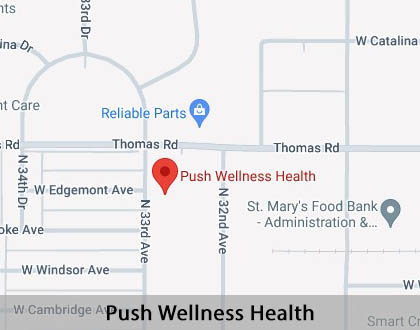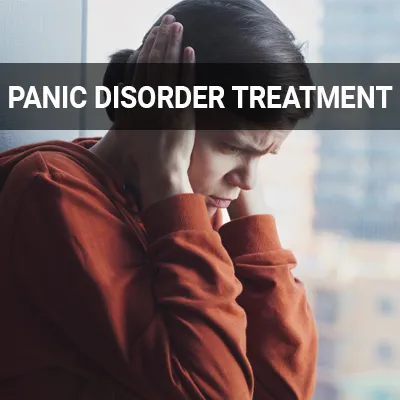Family Therapy Phoenix, AZ
Family therapy is a way for a group of loved ones to work through life's challenges with the help of a professional. Sometimes life's problems can be overwhelming even for the strongest of families. Our skilled therapists help families of all types overcome difficulties and form stronger ties. Our clinic provides services for children, adolescents, adults, and seniors. We have specialized clinicians experienced in working with each age group.
Family Therapy is available at Push Wellness Health in Phoenix and the surrounding area. Whatever issues you and your loved ones may face, we can help you face them together. Call (480) 737-4658 for more information.
What is Family Therapy?
Family therapy is a type of group therapy where members of a family seek the help of a therapist or counselor to help them work through issues together. A psychologist, social worker, or licensed therapist leads the sessions. Whether the family is going through a rough time or dealing with an ongoing issue, this therapist acts as a neutral third party to help family members overcome their difficulties and build stronger bonds.
The therapist typically meets with the family as a group. During their sessions, the therapist will get to know each member and the family dynamics. Through talk therapy and various techniques, the therapist will help a family explore their problems, identify conflicts and form solutions. The therapist will seek to foster understanding and communication so families can resolve their issues and become a stronger and more loving family unit.
“Whether the family is going through a rough time or dealing with an ongoing issue, the therapist acts as a neutral third party to help family members overcome their difficulties and build stronger bonds.”
Benefits of Family Therapy
One of the major benefits of family therapy is access to a neutral third party who can look at a situation from the outside and offer professional and objective guidance. Often, a therapist can see a problem family members cannot and identify novel solutions. In addition, a skilled therapist can apply their knowledge of human behavior and psychology to give family members the tools they need to understand each other, communicate better, and resolve longstanding conflicts.
Families come to therapy for a wide range of reasons. Sometimes a particular event such as the death of a loved one or divorce has plunged the family into a state of grief they are unequipped to handle alone. Other times, family members have longstanding communication or resentment issues they have been unable to work through for years. In addition, families may be struggling with a particular member's health, mental wellness, or addiction issue and need help coping with additional stress it puts on the family as a whole. Whatever brings a group of loved ones to us, our therapists can help families get past their problems and grow stronger as a family.
“A skilled therapist can apply their knowledge of human behavior and psychology to give family members the tools they need to understand each other, communicate better, and resolve longstanding conflicts.”
The First Appointment
The first appointment is the intake, where the family meets with the therapist to discuss what brought them to therapy. The intake is a chance for the family to get to know the therapist and ensure they are a good fit. Each member will have the opportunity to speak so the therapist can get an idea of the main issue and where each family member stands.
A family should seek a professional with experience dealing with the family's particular struggles. This therapist should be someone all family members can trust. A family doctor can be an excellent place to seek a referral because they will be familiar with everyone in the family. Trusted friends are another great resource, as is a health insurance provider. However, if these options are unavailable, the internet provides a wealth of information on local family therapists and mental health websites one can go to for advice.
What therapy looks like will vary considerably from family to family. Sessions tend to be weekly and last about an hour per session. The number of sessions a family needs depends on the complexity of the problem and how successful the family is at coming to a mutual resolution. The average length of family therapy is 12 sessions. However, some families may choose to see a therapist for months or even years.
“A family should seek a professional with experience dealing with the family’s particular struggles.”
Check out what others are saying about our therapy services on Yelp: Family Therapy in Phoenix, AZ
The Focus of Family Therapy
The focus of family therapy is on a family's interactions and dynamics. First, the therapist helps the family identify emotional, psychological, and behavioral problems. Then, they help the family find and enact solutions. Next, the therapist observes how members interact with each other and identifies any unhealthy coping mechanisms and communication patterns. Then, they work with members to create healthier communication and problem-solving skills.
All family therapists have a different approach tailored to each family's needs. However, all these approaches focus on improving emotional awareness, acceptance, communication, and empathy. Here are some common techniques therapists use:
- Behavioral techniques. These techniques involve problem-solving skills training, such as using modeling and role-playing to help family members foster more positive communication.
- Psychodynamic techniques. With these methods, the therapist assesses how each family member responds to difficult situations and helps those members respond in a healthier, more effective manner.
- Structural techniques. Using these techniques, the therapist helps family members set boundaries and balance power dynamics to help the family cooperate and function better as a team.
During the intake session, the family will have a chance to ask the therapist about their specific methods, so members know what to expect from therapy sessions.
“The therapist observes how members interact with each other and identifies any unhealthy coping mechanisms and communication patterns.”
Questions Answered on This Page
Q. How can a family benefit from therapy?
Q. How can I find a family therapist?
Family Therapy and Everyday Life
Family therapy has proven successful for most who fully participate in it. According to the American Association for Marriage and Family Therapy (AAMFT), 90% of clients report an improvement in their emotional health. In addition, the majority of clients reported improvements in their family relationships.
Successful family therapy not only helps the family unit through its current issues but also equips family members with the tools they need to form stronger connections and face future challenges in a more positive manner than they have in the past. Many families find they can take what they learned in their sessions, apply it to future conflicts and achieve better outcomes for themselves and their loved ones. While therapy will not solve all family problems, it will give families the opportunity to build a stronger foundation for growing together and not apart.
“Many families find they can take what they learned in their sessions, apply it to future conflicts and achieve better outcomes for themselves and their loved ones.”
Frequently Asked Questions
Q. Will my health insurance cover family therapy?
A. Mental health is becoming a bigger national priority, and health insurance companies are taking notice. Many health plans cover mental health care, including family therapy. Chances are, your health insurance will cover at least a portion. We encourage you to check with your provider on the specifics of your coverage.
Q. What if some family members are unwilling to go to therapy?
A. If you are struggling with a family member who is unwilling to go to therapy, you are not alone. This can be a difficult situation to resolve, and ultimately you cannot make someone do what they do not want to do. It is best to start by asking them why they do not want to go and then addressing that issue if you can. If they are still unwilling, family therapy can still be beneficial for those members who participate. Just let the unwilling family member know that you are trying to help, and the door is always open when they are ready.
Q. What can I do to help ensure family therapy is successful?
A. It is important to approach therapy with few expectations, an open mind, and clear goals. Make sure you take the time to find the right family therapist. During sessions, it is important to listen calmly and avoid interrupting, outbursts, or arguing. Strive to remain respectful to your loved ones and make a conscious effort to see things from their perspective.
Q. Can my family therapist counsel me individually?
A. There are some cases where this is appropriate. However, if you plan on seeing a regular therapist on an individual level, it should be someone other than your family therapist. It is important that your family therapist remain unbiased. With this said, we find that those who seek therapy as individuals are able to enhance the success they have with family therapy.
Q. What qualifications does a family therapist have?
A. Qualifications can vary by state. However, most family therapists have bachelor's and master's degrees in psychology or a similar field. After their education, therapists need to pass a state-recognized exam.
Start Feeling Better – Visit Us Today
By visiting us as soon as possible, our team can help get you the professional treatment you need. Instead of waiting around and allowing the symptoms to get worse, we can provide you with treatment options.
Definitions
Call Us Today
Family bonds are among the most significant in a person's life. We know that the emotional health of your family is a priority for you. Therefore it is our priority too. We offer family therapy in Phoenix and the surrounding area. If you or a loved one need our help, call 480-737-4658 to learn more.
If you live in the Phoenix area, call for an appointment in our Phoenix office.
Helpful Related Links
- American Psychiatric Association (APA). American Psychiatric Association (APA). 2024
About our business and website security
- Push Wellness Health was established in 2022.
- We accept the following payment methods: American Express, Check, Discover, MasterCard, and Visa
- We serve patients from the following counties: Maricopa County
- We serve patients from the following cities: Phoenix, Tolleson, Sun City, Paradise Valley, Gilbert, Chandler, Tempe, Mesa, Queen Creek, Scottsdale, and Glendale
- Norton Safe Web. View Details
- Trend Micro Site Safety Center. View Details
Back to top of Family Therapy










